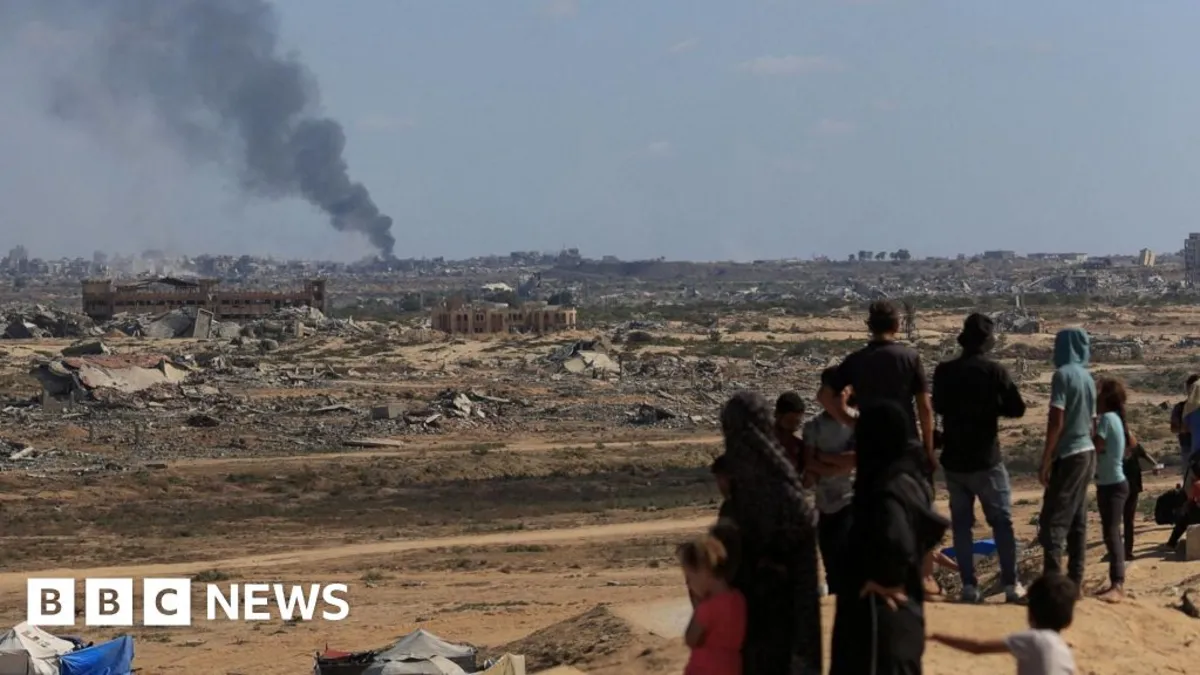
The BBC reports that mediators have reached out to Izz al-Din al-Haddad, the head of Hamas's military wing in Gaza. Al-Haddad has made it clear that he does not support the new US ceasefire plan. He perceives the proposal as an attempt to dismantle Hamas, regardless of the group's acceptance, and has expressed a strong determination to continue the fight.
The 20-point framework proposed by US President Donald Trump aims to end the ongoing conflict and has already received approval from Israel. A significant stipulation of this plan is that Hamas must disarm and withdraw from any governing role in Gaza. While some members of Hamas's political leadership based in Qatar are reportedly open to accepting the plan with modifications, their influence is limited, particularly as they do not control the hostages currently held by the group.
Currently, there are believed to be 48 hostages remaining, with only 20 thought to be alive. One major obstacle for Hamas is the plan's requirement that they release all hostages within the first 72 hours of a ceasefire, effectively relinquishing their most critical bargaining chip. Even with Trump's assurances that Israel would adhere to the terms of the ceasefire, there remains a significant lack of trust within Hamas regarding Israel's intentions. This skepticism is fueled by a recent airstrike that targeted Hamas leadership in Doha, which occurred in defiance of US directives.
Another contentious aspect of the proposal is the deployment of a temporary International Stabilisation Force to Gaza, as outlined by the US and Arab states. Many Hamas leaders view this deployment as a form of occupation, which complicates matters further. Additionally, a map shared by the Trump administration detailing phased Israeli troop withdrawals from Gaza includes a security buffer zone along the borders with Egypt and Israel. The management of this buffer zone remains unclear, and if it involves Israeli oversight, it is likely to become a significant point of dispute.
Following the agreement to the plan on Monday evening, Israeli Prime Minister Benjamin Netanyahu has publicly pushed back against several terms. In a video posted on X, Netanyahu asserted that the Israeli military would retain the ability to operate in parts of Gaza and emphasized Israel's intent to resist the establishment of a Palestinian state. This stance contradicts the terms of the US framework, which stipulates that Israeli forces should withdraw entirely, aside from a minimal security presence until Gaza is secure from any renewed terror threats.
The US framework also proposes a potential pathway to Palestinian self-determination and statehood once the plan is fully implemented. However, Hamas has previously stated that it will not disarm until a sovereign Palestinian state is established. The Israeli military's ongoing campaign in Gaza was initiated in response to a Hamas-led attack on southern Israel on October 7, 2023, resulting in approximately 1,200 deaths and the abduction of 251 individuals. Since then, at least 66,225 people have reportedly lost their lives due to Israeli attacks in Gaza, according to the territory's Hamas-run health ministry.